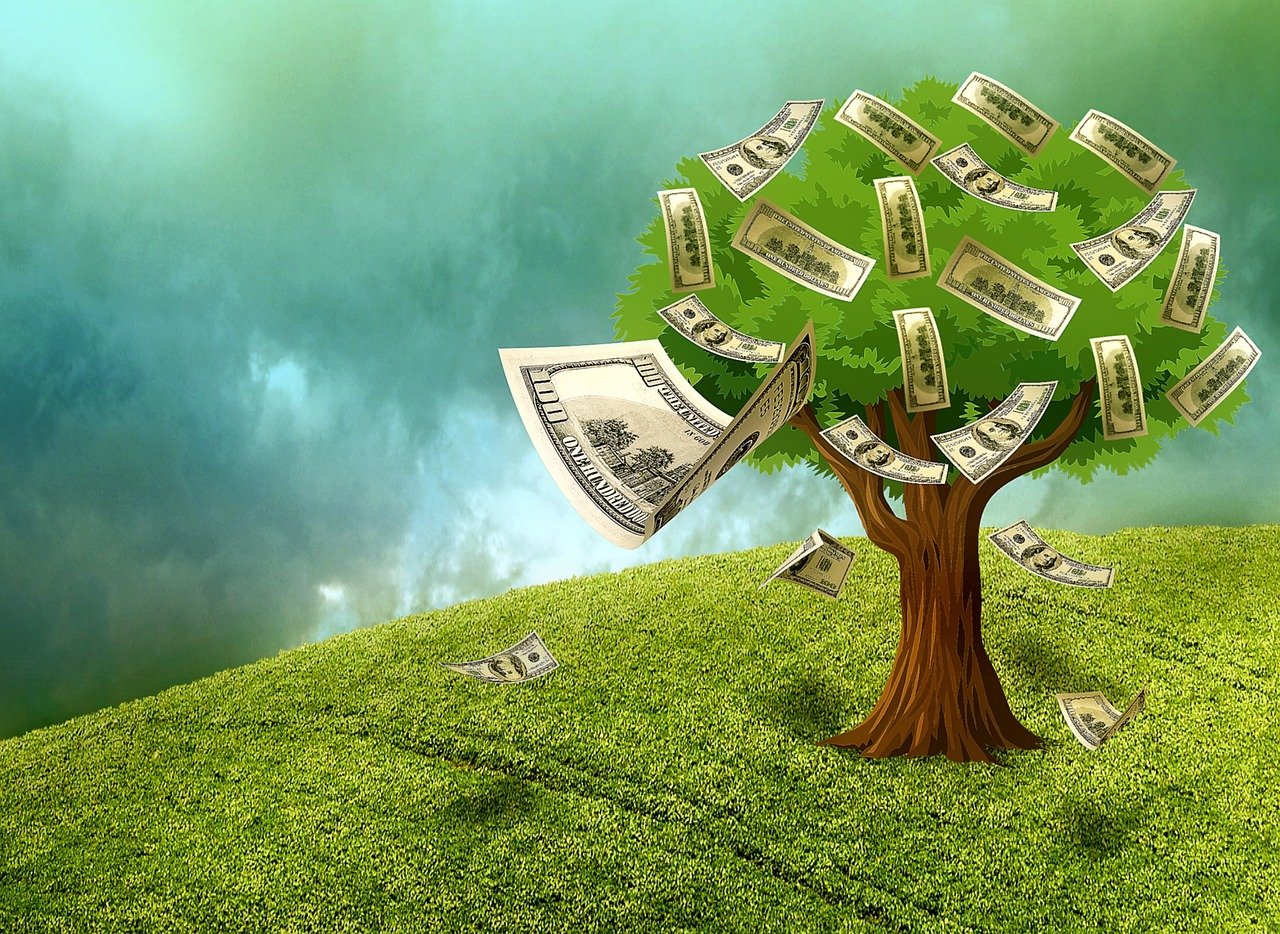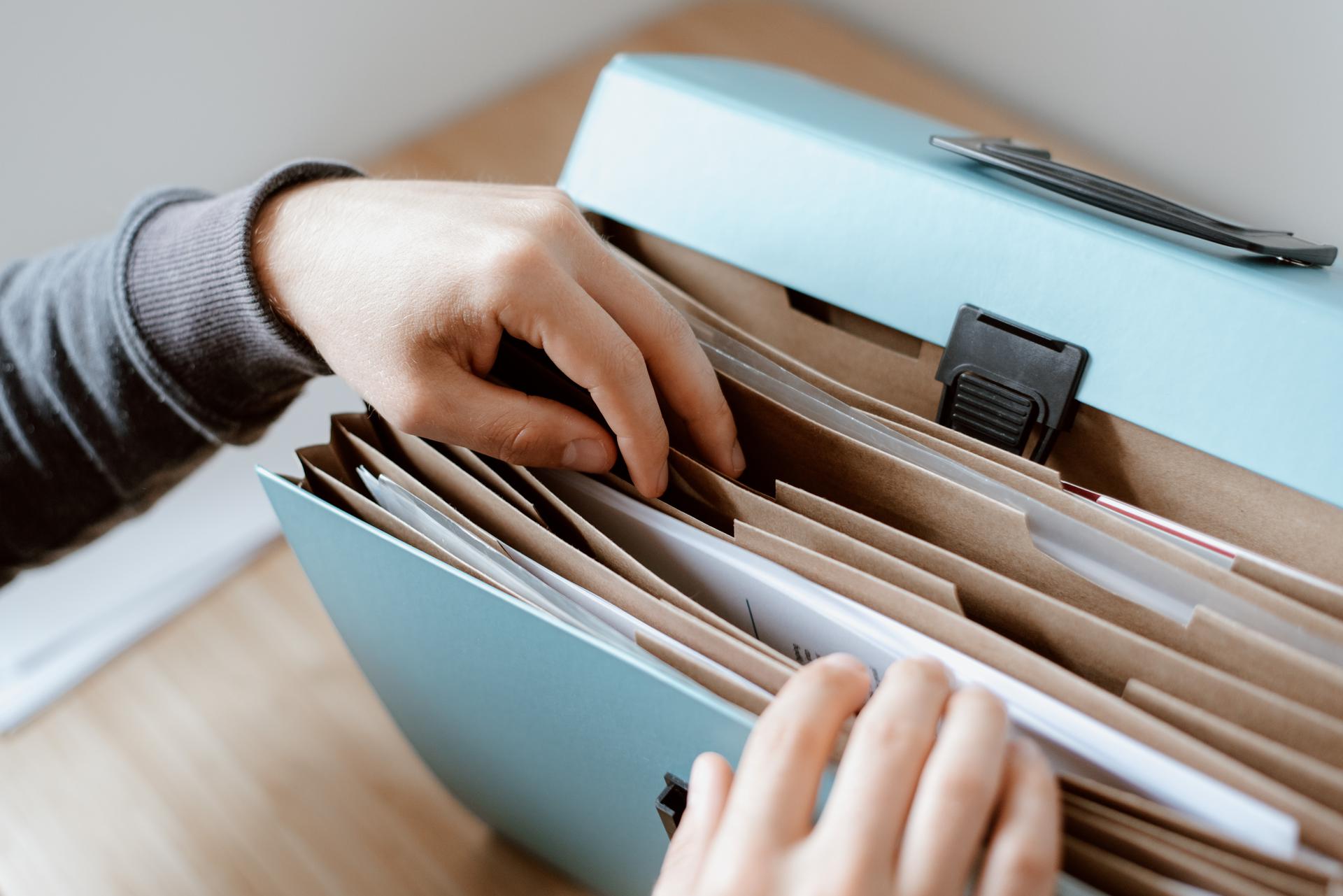In this Issue:
-
-
Important! New Office Contact Details
- High Inflation - What does it mean for your Business?
- Increase to the Minimum Wage
- What's your Business Worth?
- Is it time to Power down?
-
Upsizing or Downsizing?
- Business Tips - Writing a Mission Statement
- Get Organised for year-end Accounts & A New Financial Year!
- Employee Conflict & How to Handle it
- Property Tax Rules Reminder
- Changes to Individual Tax Rates
-
Welcome to the April 2022 edition of the HBT Newsletter!
Since our last Newsletter, we've entered a new stage of the Pandemic and that - along with dramatic events overseas, has meant Business Owners need to adapt to operating in a rapidly changing economic environment.
In this edition we've selected a range of topics we think will help you navigate the changes in the financial climate and the challenges faced as a result. Have a good read through and if you have any questions - let us know!

Important! New Office Contact Details:
We've taken your concerns on board and have set up a dedicated Office line. This will be available between the hours of 9am and 5pm weekdays. Our updated Office details are as follows:
Phone: (021) 686 337
Email: office@hbtaccountants.co.nz

High inflation is hitting businesses and households hard in 2022. Across the world, inflation is running high, thanks to factors like pandemic disruptions, monetary stimulus and supply-chain issues.
You’ll see the effects of inflation at the supermarket and the fuel pump – and in your business.
Eroding each dollar’s buying power
Inflation increases prices, which eats away at the buying power of your dollar. For business owners, that means you’ll encounter higher costs from your suppliers. Materials are more expensive, transport has become far more costly, and basics from office supplies to utilities are all rising in price.
In addition, your staff are probably asking for pay rises. For you and your employees to keep up with inflation, your income needs to increase by at least the same amount as inflation. To achieve that could mean a seriously large wage bill increase for your business.
Rising interest rates
Central banks try to keep inflation at a sustainable level. They react to high inflation by raising their interest rates, which slows the economy and puts a handbrake on inflation. As a business owner, you’ll see this reflected in a higher cost of borrowing, and the same will apply to your home loan.
Inflation does have some side-effects that could be positive for your business. First, it tends to push up the value of big-ticket assets that your business might own, like property or plant. Second, it makes debts seem smaller – your debt amount stays the same but hopefully your income rises.
It’s time to raise your prices
With inflation causing you to spend more, your business will also need to raise prices. This is always a sensitive topic to tackle with clients and customers, but at least the way has been paved for you by prices rising across almost every single sector and industry.
If you’re wondering how much you need to increase prices in order to keep up with inflation or maintain your margins, do give us a call. We can run the numbers, test out scenarios and figure out a sweet spot that will work for your business. We’d love to help.
Have you updated your payroll systems and processes for the new minimum wage?
When there are added stressors on cashflow, it can help to rethink your costs. Talk to us today.


Your business should be one of your biggest assets – but what’s it actually worth? Whether you want to sell your business, adjust the ownership, borrow, or calculate your net worth, a business valuation can be extremely useful.
Earnings and assets
The two most important value drivers of your business are earnings and assets. These are the main selling points – strength of earnings and/or valuable assets will make any business more attractive.
Other intangible factors can play a part in adding value, like goodwill and potential. These can definitely make a business more saleable, but they aren’t always easy to put a price on. Coming up with an accurate valuation on a privately-owned business can be tricky.
No single formula for finding a value
The most common way to value a business in New Zealand is: EBITDA x Industry multiplier. EBITDA is earnings before interest, tax, depreciation and amortisation. Each industry will have a multiplier, or one can be estimated by looking at other local and international sales. That’s a basic starting point, which can then be tweaked depending on the strengths or weaknesses of the individual company.
There are also plenty of other methods for arriving at a valuation. Sometimes a business will be sold for a multiple of revenue, or simply for asset value. There are so many variables that it’s tough to estimate on the back of an envelope; that’s where we can help.
We can value your business
Valuing a business takes a bit of skill and a bit of experience. If you’re considering selling, we can help you put a value on your business, draw up accounts to show a potential purchaser, and give you ideas about how to get the best price.
You might need a business valuation for other reasons – for the bank, maybe, or for a staff share scheme. Once again, we can work with you to figure out what your business is worth. We’ll look at all its assets, its earnings and the intangible factors that make your business uniquely appealing.

Is the net running your life? Do you need some unplugged time just to reset? Six tips to help you power down and refresh.

The post-Covid, globalised economy has created a number of challenges for the average business. Depending on your business purpose and strategy, you may need to either upsize, or downsize, to secure the long-term future of your company.
But what are the implications of scaling up, or scaling down, your operations? And how do you refine your business so it's fit for purpose and ready to take on your new aims and goals?
The answer is to look carefully at your forecasting and your future decision-making.
Looking at the ongoing needs of your business
Our experiences of the pandemic have demonstrated one very clear lesson – you never know exactly what lies around the corner for your business. But the more prepared you are, the better you can respond, as and when new threats and opportunities do appear.
With this in mind, forecasting and scenario-planning can be exceptionally important tools.
Rather than crossing your fingers and hoping for the best, you can plan for two, three or more different outcomes – with different strategies and tactics for each separate scenario. You can’t bullet-proof your business, but you CAN make sure that you at least have a Plan B (or C).
Scaling up, or scaling down?
By making constructive use of forecasting, you’ll be able to see the most viable path for your business. From here, you can make a decision on whether scaling up, or scaling down, is the most appropriate action for the long-term health of the company.
Some key questions to ask during your decision-making may include:
- Do you have enough funding to grow, or do you need to downsize? – Knowing how much working capital you have available in the business is a vital piece of information. If you have a healthy balance sheet, a workable funding strategy and access to lenders, you’ll be able to fund your growth. If your cash reserves are depleted and access to finance is limited, now may be the time to shrink the business and consolidate things down – helping you to survive to fight another day, even if it is at a reduced scale.
- Do you need more, or fewer, employees? – If your market share has dropped, you may need to downsize your team. And if you've hit a winning streak of sales, you may need to upsize your workforce to meet demand. Look at what resourcing you need and the types of skills, capabilities and long-term knowledge you need from your team in order to meet your new goals and targets.
- Do you need to train your existing people? – If your business purpose has evolved, or you're moving more into the online or digital arena, you may need to train up your staff. Upskilling your people helps to bring them more in line with modern digital business practices, software and online customer interactions, all of which helps to increase your operational capabilities and your customer service levels as a business.
- Do you need the same number of branches/shops/offices? – If you've instigated remote working or hybrid working, you may not need so much office space for your people. And if you’ve moved a lot of your business to online selling, fewer bricks-and-mortar outlets will be required. Cutting building lease costs and/or commercial mortgage expenses can be a serious cost-saver for the business. Conversely, if you’re aiming to scale up, it’s likely that larger premises will be needed – resulting in higher property costs, but increased income from your scaled-up operations.
- Do you need new equipment, machinery or vehicles? - Knowing what tangible assets you need in the business is an important part of your new business plan. If you’re expanding your operations, new equipment and/or vehicles will be needed to meet the new demand. This is likely to mean taking out third-party finance, or digging deep into your cash reserves. If you’re downsizing, there’s potential to sell-off existing equipment and assets and to free up this equity for other projects in the business.
Talk to us about scenario planning and decision-making
If you’re in the process of evolving or changing your business purpose, please come and chat to us. We can help you review your existing business plan, run scenarios and forecasts, and look at the long-term future path of your business.
Do you know WHY your business does what it does? A mission statement can set the best possible foundations for your business.
#businessadvice #startup


That time of year has rolled around again and means many of you will be preparing your records for your 2022 year-end accounts but also looking ahead for the new Financial Year. A few things to remember are:
Stocktakes:
Stocktakes are an important part of inventory management. Used to double-check the stock levels reported in your financial records, a stock take is completed by physically counting each item of stock in possession. Often times, stock may be damaged, dumped or stolen during the year and some items can become obsolte (meaning they are no longer able to be sold on, perhaps due to being out of date). These items will need to be written off to give a fairer representation of actual stock on hand.
Reviewing the Asset Register:
Just as items of stock may need to be written off, so too can certain assets. It's essential that a regular check of your asset register is carried out and any assets which have a negligible value, are broken beyond repair or have been sold during the year need to be updated on the register. The simplest way to do this is to review your last set of accounts prepared by us. The Depreciation schedule included in these accounts lists all of your assets and their carrying (or closing values) at the end of the previous financial year. From there, if you provide us with detail on any of the assets you think could be written off, we can review this and action it on our end.
Preparing a Budget:
Preparing regular budgets has always been important. However, with sky rocketing inflation and the economy so unsettled, this is now essential.
The trouble being many business owners are a "Jack of all Trades" dealing with managing and overseeing staff, the physical operations of their business and the finances. They are notoriously time poor and budgeting often becomes one of those "bottom of the to do list" tasks which in the end, is never prioritised. We'd like to encourage that now - more than ever, it's at the top of the to do list.
Budgets provide many advantages including (but not limited to);
- Organising Cashflow - both for everyday obligations and special projects
- Assists with setting Targets
- Peace of Mind and being "in the know" on how your business is tracking through the year
- Planning around making those important tax payments during the year\
Questionnaires - 2022 Financial Year:
In March we sent out our yearly questionnaire. These are essential for keeping our records up to date but should also serve as a means of opening the conversation regarding any changes to your business or finances during the year.
If you haven't gotten back to us yet, please do take the time to read through, sign and return to us. This can also be included when you send in any documents necessary for us to complete your 2022 Accounts.
The above topics we hope will inspire you to get preparing, but if they have raised any questions please get in touch - we're here to help!

Workplace conflict can seriously damage employee productivity and motivation, and increase absenteeism and turnover. So it’s wise to take a proactive approach to effectively managing and resolving conflict.

During the year we've seen a few changes to how properties and the income they generate are taxed.
As a summary the following rules now apply:
Tax could apply on Property Transactions in the following circumstances:
- Properties purchased between 29 March 2018 and 26 March 2021 and sold within 5 years
- Properties purchased on or after 27 March 2021 and sold within 10 yearswith the exception of New Builds which have been granted a Brightline Period of 5 years (providing they meet certain qualifying criteria. For more information go to IRD - The Brightline Property Rule)
Interest Claimability:
Restrictions have been introduced surrounding the ability for Rental Property owners to claim mortgage interest against any rental income for tax purposes with the government phasing out the ability to deduct interest completely over a four year time frame.
This will work as follows:
New Builds which received their code of compliance certificate after 27 March 2020 will be exempt from new tax rules limiting deductibility of interest for a period of 20 years. With the aim being to support more new homes being built. In turn, satifying the high levels of demand in the housing market and creating more options for first-home buyers.
For any other properties it becomes a matter of the date at which a property was purchased:
- Properties purchased on or after 27 March 2021 will only be able to claim interest up until 30 Septermber 2021 after which time, no interest may be deducted from rental income.
- Properties purchased prior to 27 March 2021 will be able to continue to deduct interest over a period of 4 years but at reduced portions each year up until 2025.
- Please see IRD - Interest Limitation Rules for more detail.

During 2021, the IRD increased the top tax rate to 39% which is both higher than the 28% for companies and 33% for Trusts. It's estimated the change will affect around 119,000 Kiwis who earn over the $180,000 bracket in taxable income each year. The Tax Rates now stand as follows from 1 April 2021:
- Up to $14,000 at 10.5%
- Over $14,000 and up to $48,000 at 17.5%
- Over $48,000 and up to $70,000 at 30%
- Over $70,000 and up to $180,000 at 33%
- Remaining income over $180,000 at 39%
This is a short reminder that there are a couple of important due dates coming up in May including:
-
- GST is due for filing and payment on the 9th of May - this includes 6 and 2 monthly filers with periods ending the 31st of March 2022.
- Final Provisional Tax Instalment for the 2022 Tax Year is due on the 9th of May.
For Provisional Tax payers, our reminder notices were sent out on the 20th of April. If you haven't received a notice and are unsure whether these dates apply to you, please get in touch, we'd be happy to help!

Join us on Facebook and be in to Win!!!

Click the Facebook Icon below to head to our Facebook Page and make sure to hit the "Like Button" when you do!
Any Page Likes or Reviews from now until the end of May will go in the draw to win a $100 grocery voucher for New World.
And that's not the only reason to sign up to our page! Each week we publish our Wise Wednesday post including up to date and relevant articles. Making it easy to follow what's new in Business, Tax, Compliance and more.
You'll also find the link to our web site where you can view all the previous editions of our newsletters and articles or learn a little more about what we do. If you have any friends or family you think might benefit from reading our releases, point them towards our page and let them know to get in touch if they have any questions.
|
|

Contact Us:
David: (021) 666 071
Neera: (021) 050 4830
Our Website: https://hbtaccountants.co.nz
As a growing Business, we welcome Referrals.
